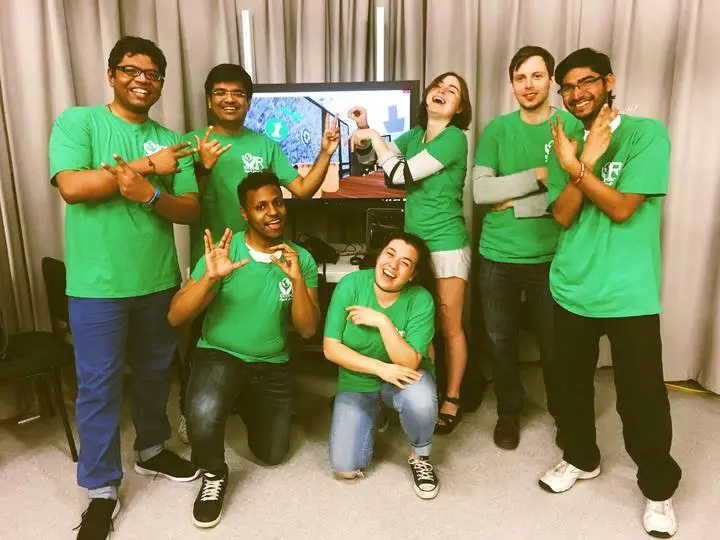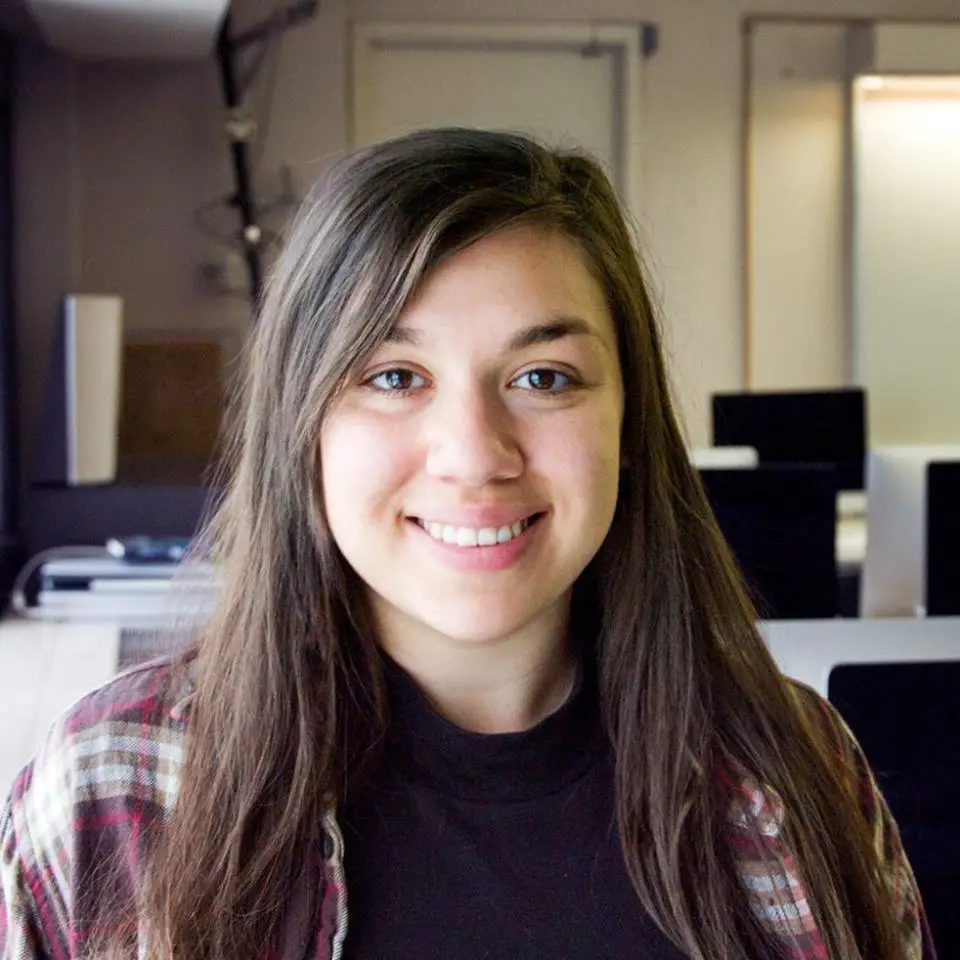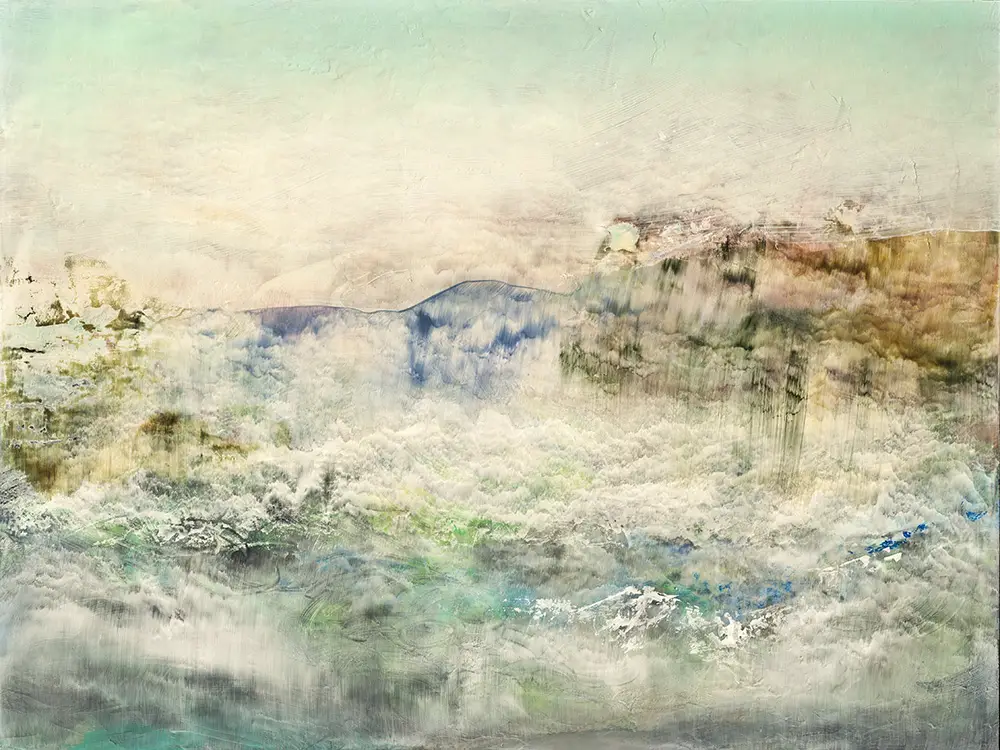With a wider reach than any theoretical jargon, art inspires feeling on a level speeches or petitions can’t reach by putting complicated ideas into a universal language. Such is also the case with the movement toward environmental sustainability, as evidenced and facilitated by the Green Arts Network, a community of artists based in the Boston area, founded by Stephanie Houten, a student at the Massachusetts College of Art and Design. The group was founded with a focus on sustainability politics, and works to bring artists interested in the subject together to enact change.
Houten, now a rising senior at MassArt, says her first ideas for what would become the Green Arts Network came to her during her freshman year of college. “I started taking a class for sustainability in art and design,” Houten says. “I had this idea for kind of a blog, or a Facebook group, that would share art that was geared toward climate change or environmental politics, or anything related to sustainability.” Houten followed through on her plans, creating the personal Facebook profile “Green Arts Network,” adding people from the Boston art scene and then promoting their work.
Organizing an online community is one thing, but taking it into the world is another. Houten and her professor wanted to have an event where the artists being promoted online could be exhibited in person. Her professor encouraged Houten to apply for a grant through MassArt. Houten applied, arguing for her desire to create an event where artists could be exhibited and meet one another as an opportunity to network and build a community focused around sustainability. “I wanted to bring people together, in person. You only get so much engagement on the internet.” Houten explains how this was especially the case with regard to art, as seeing it in person is often much more meaningful and tangible than finding it online.

Houten got the grant and the event moved forward. Artists interested in environmental politics weren’t the only ones who showed up, though; representatives from local sustainable groups, as well as organizations such as Boston Climate Action Network and 350 Mass, were there to introduce themselves and recruit people interested in their causes. It was a networking event centered around art and a conversation on sustainability politics.
This upcoming fall will mark the third year the Green Arts Network has put on the event at MassArt. Each year the Network works to curate strong art, trying to accept as many people as possible, limiting their admissions to those artists whose work is relevant to the theme of sustainability and those who can physically make it to the event. “The hope is that these artists come in and meet each other and say, ‘Oh look there’s another artist in Boston who’s working on similar themes in their work.’ It builds a community.”
Houten has seen artists who’ve attended the Network’s events at local events in the Boston area, many of which are solely related to sustainability. “The goal is to bring the art community together, but you can only get people to hang out with each other if they want to, so it’s to create an environment for those artists to come together.” Houten’s hoping the event will grow even more this coming year, and that the Green Arts Network, and those they promote, will gain more recognition. Houten’s network is a promotional body, not a nonprofit, so they don’t have money to give their showcased artists, but all are encouraged to bring business cards and use the event as an opportunity to sell their art to anyone interested. “We, unfortunately, can’t provide any monetary compensation for what they do.”
Despite fiscal limitations, Houten maintains that the event is important because it allows students at MassArt to see other artists who are engaging with social issues in their work. The event is about showing the intersection between activism and artwork, and the mechanics of bringing such themes into one’s own work. Houten believes the event helps students observe and troubleshoot ways to incorporate and express environmental themes.
“We’ve had a lot of painters, sculptors.” Houten said, remembering several memorable artists who’ve attended the events over the past two years. There was a sculptor last year who created wooden pieces with living plants inside them, a painter the year before who created abstract works centered on plant life, as well as an artist who only painted species currently going extinct in the New England and Massachusetts region. “It’s definitely a lot of fine artists.” Houten explains that she does want to diversify the crowd. This year she hopes to curate the work of filmmakers, performance artists and more experimental forms.
Houten wants to address the complicated relationship between sustainability and poverty. “We’ve been talking a lot about environmental racism and how in urban settings people have to live a different lifestyle.” In some ways, this can work in favor of environmental issues, as many who cannot afford cars make use of public transportation. “But it’s also inaccessibility to healthy food, pollution, air quality, living conditions.”
Environmental issues have become even more pertinent in the current political climate. “Now that Trump’s been elected there’s been a lot of urgency in the social justice world, not even just the environmental movement, everything. Classism, racism and all that.” This year, Houten hopes to take on the intersection of these issues by asking artists to create work specifically addressing these issues. As a filmmaker herself, Houten believes the medium is an excellent way to express how these problems are interconnected.

Whether or not the Green Arts Network will be able to get such artists and art for the next event is still uncertain. “Part of it is on us, researching, finding those artists who are making that work, because it is out there. It’s just hard to find it. That’s part of the reason I made this group in the first place. I feel like it is a little difficult to find work that’s related to this topic just by Google-searching. You have to really dig for it.” The Green Arts Network hopes to make it easier for artists creating such work to be discovered by promoting their portfolios and acting as a medium for contacting them.
Houten has already put her ideas into practice. Through a competition hosted by Brookline Interactive Group, Houten worked on a project with several other students to develop the prototype of a virtual reality app that encourages recycling.
Houten’s team wanted to help people correctly sort their trash by designing an app that could detect the material of different objects in order to determine how or if they should be recycled. “The idea was that you could hold up an object and the camera would detect the materiality of the object.” The team went a step further, imagining how the VR tool could be made into a game. “If you put it in the right bin you can get points.” Hypothetically, such points could be redeemed for real-life prizes. They won the competition and even peaked the interest of the United Nations, who have expressed interest in developing the app further.
The Green Arts Network’s next even will be held at MassArt this October.

















